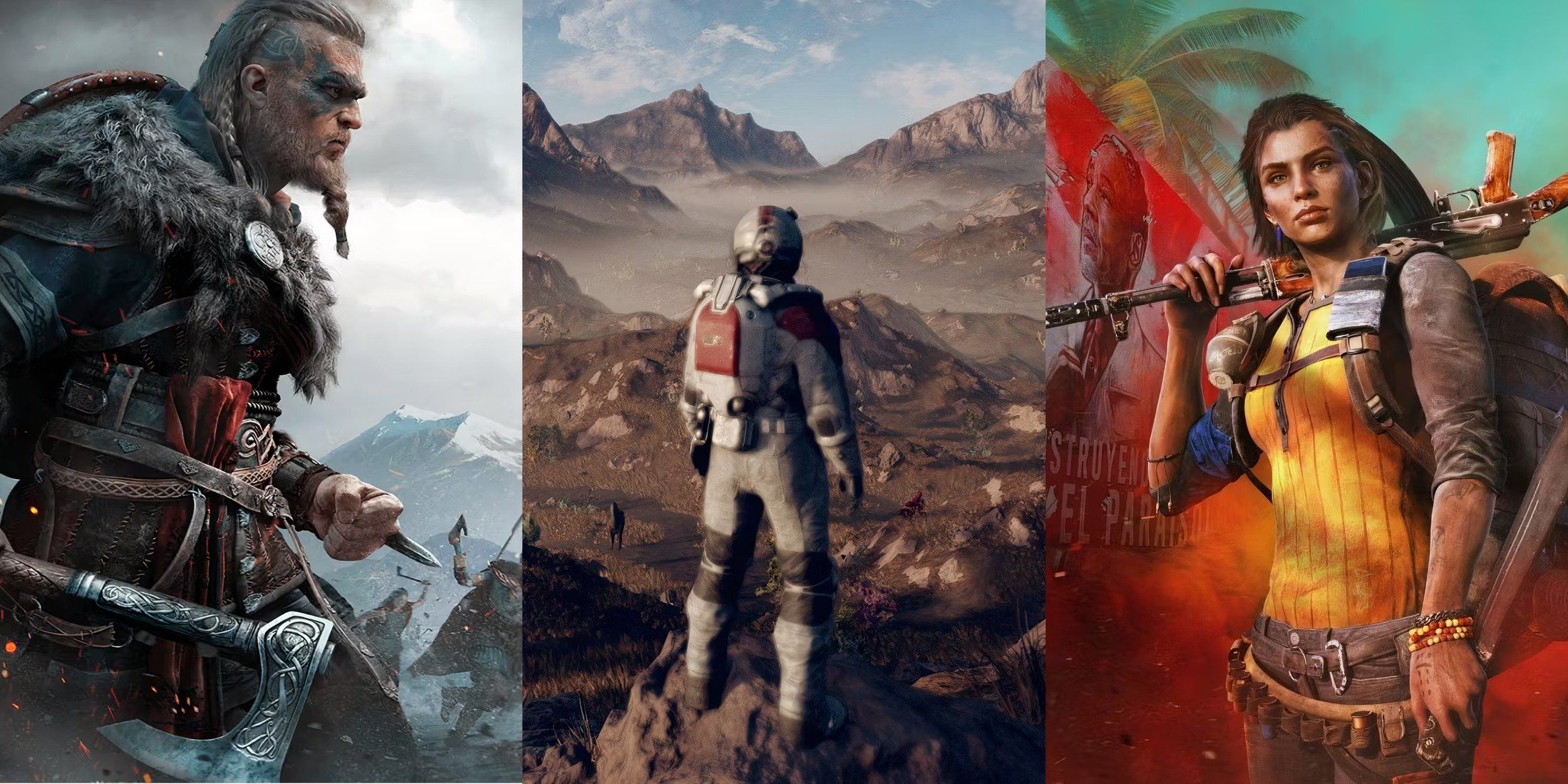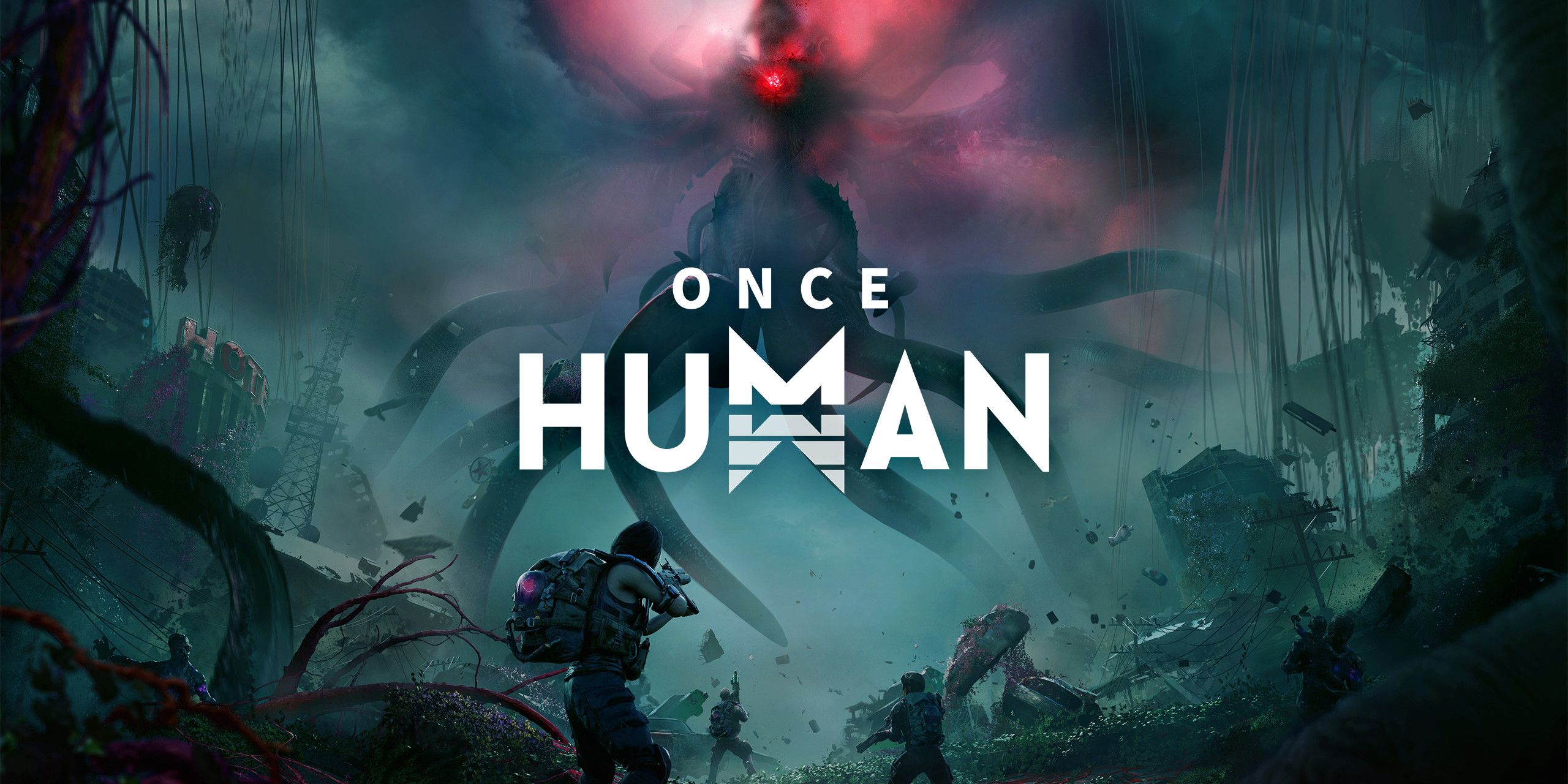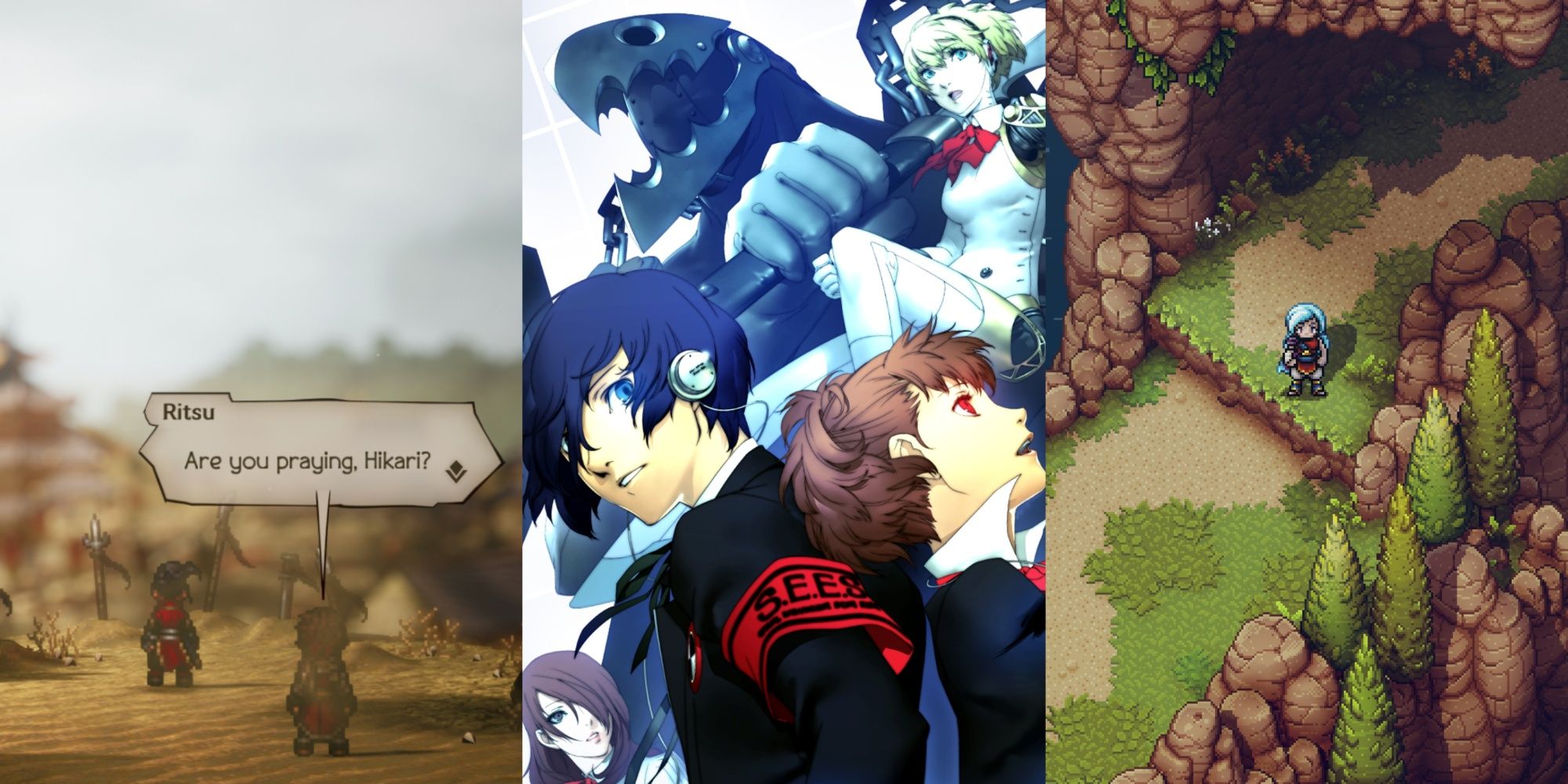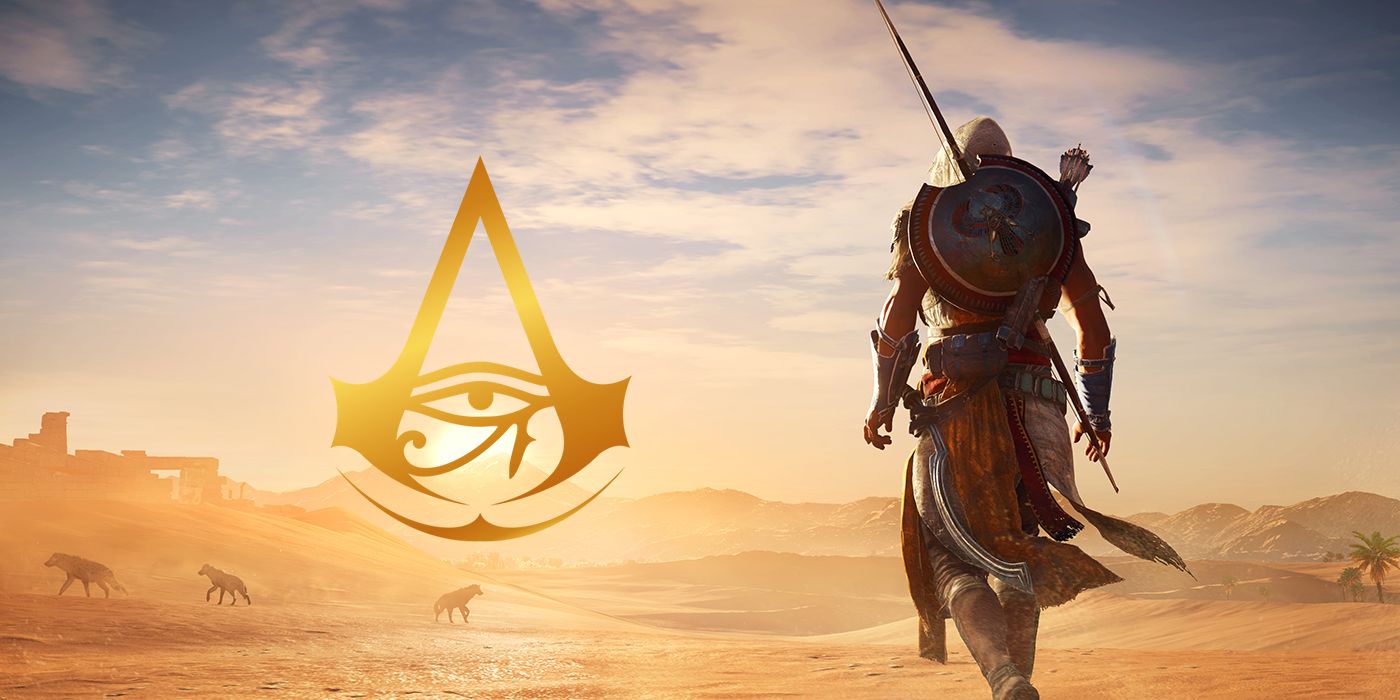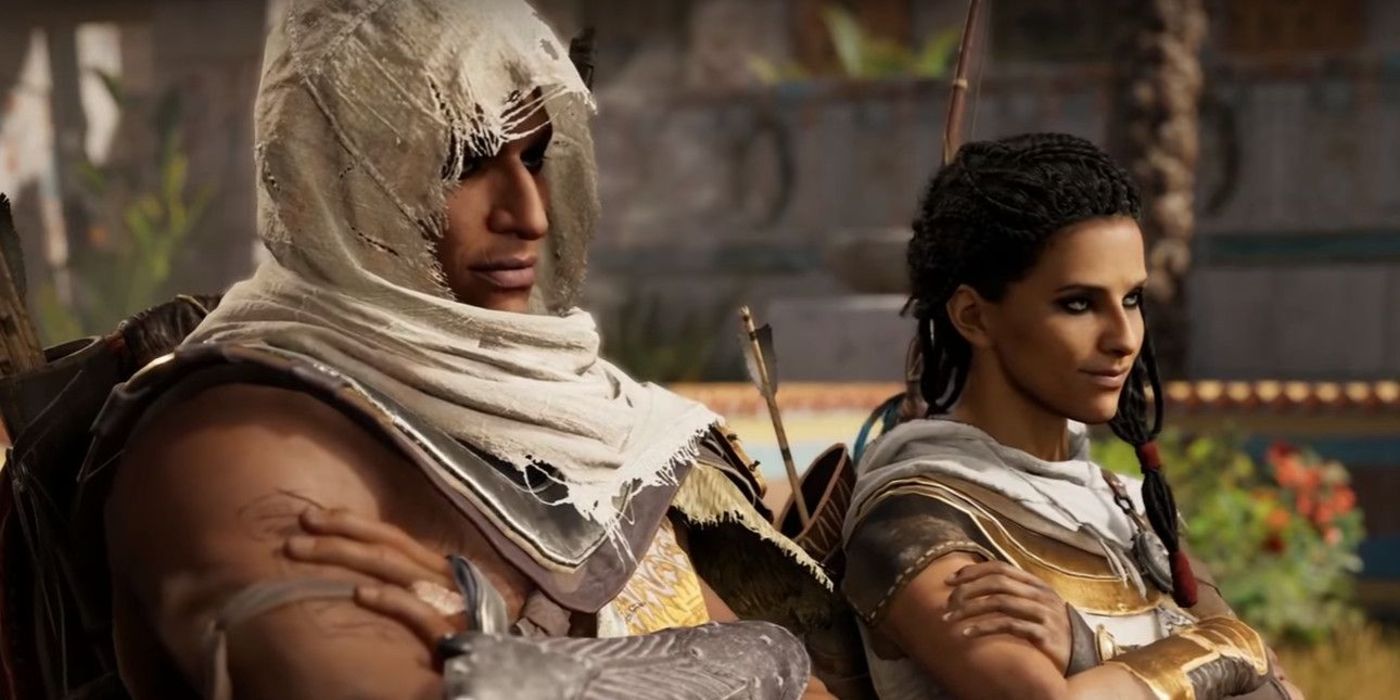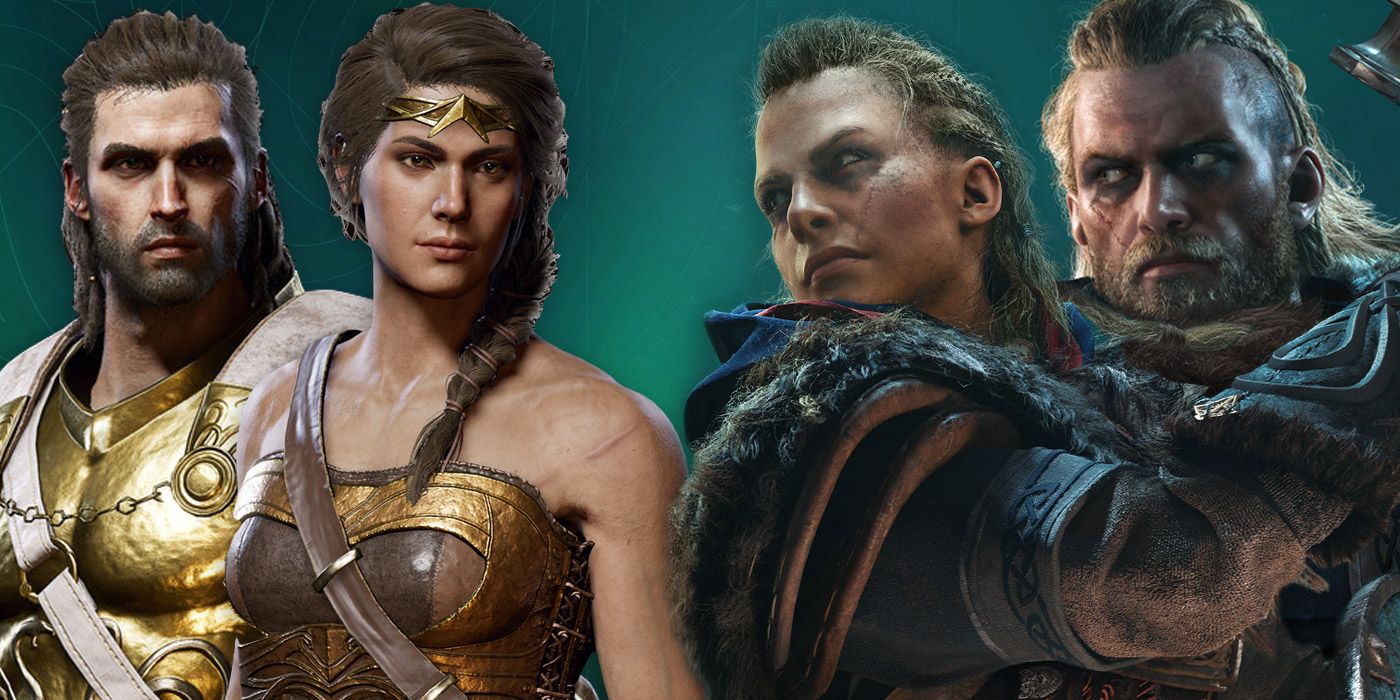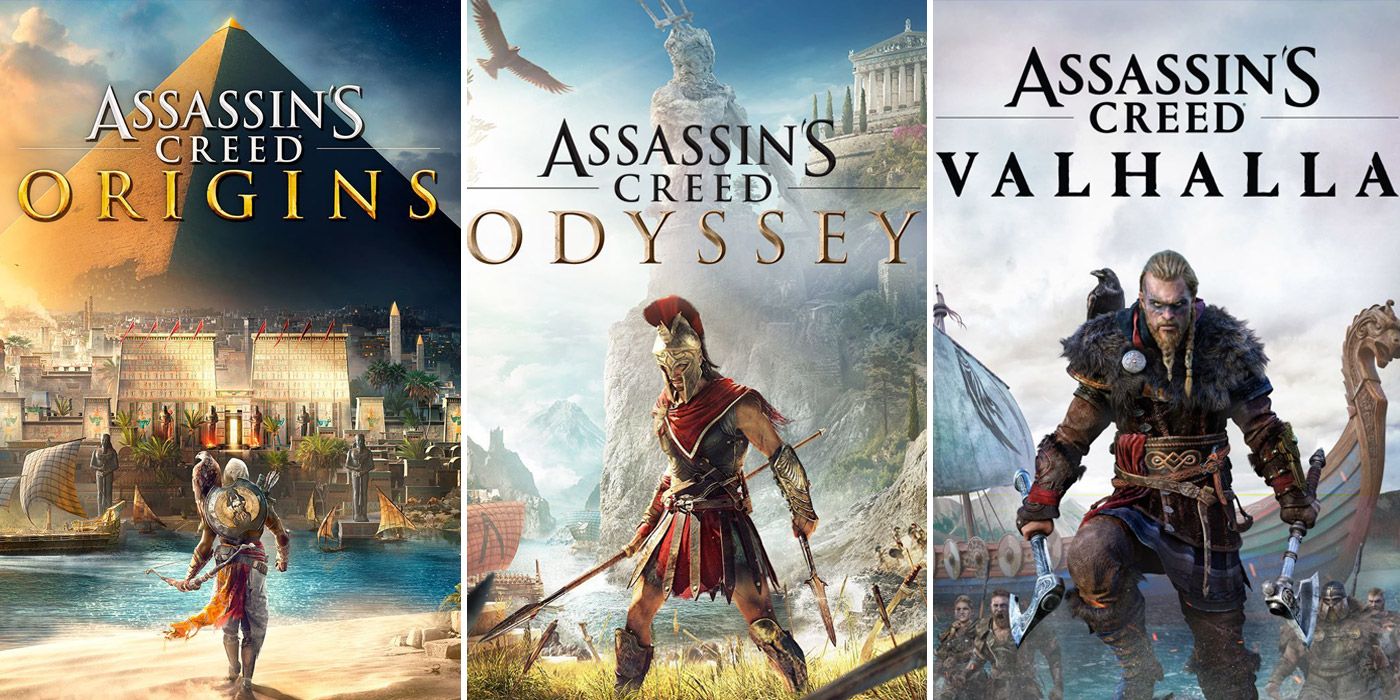For a long time, the Assassin’s Creed franchise focused on games that told stories of members of the Assassin Order; whether they were born into the Creed or found it later in life. Recently, Assassin’s Creed has strayed away from telling those kinds of stories, instead focusing on the time periods the games are set in more than telling the stories of Assassins. It’s an interesting change, especially with how RPG elements have been integrated into traditional Assassin's Creed gameplay. However, for all intents and purposes, Assassin’s Creed Origins is definitely the “odd man out” when players think about the most recent Assassin’s Creed games.
Even looking at the past entries in the franchise, Origins is technically a stretch for a traditional Assassin’s Creed game. That being said, it still stays truer to its roots than Assassin’s Creed Odyssey and Assassin’s Creed Valhalla. Given fan reactions to the most recent games, it seems likely that the next Assassin’s Creed game will follow suit of the last two, venturing more and more away from traditional Assassin games and furthering its RPG-integrated design. It’s definitely a newer style of play, but seems to be working well for the franchise thus far.
Assassin’s Creed Origins
Much like its name suggests, Assassin’s Creed Origins tells the origin story of the Assassin Order, known at the time as "the Hidden Ones." During development, the protagonist, Bayek, was actually supposed to die in early events of the game, leading players to explore Egypt and form the Creed as his wife, Aya. However, Ubisoft has often not been kind nor inclusive of its female Assassin characters, so it gradually diminished her role. Players were left with a much less fleshed out understanding of Aya’s character and motivations.
Though Bayek and Aya are husband and wife for the majority of the game, they separate near the end when they realize nothing else can come before their devotion to the Creed. They may have lost their son, but they ended up inheriting many more sons and daughters through the founding of the Hidden Ones. Though Assassin’s Creed 2 was released many years prior to Origins, Aya makes a bit of a cameo in it, solidifying her place in Assassin lore as the woman who killed Cleopatra with a snake. However, players won’t recognize her statue as Aya, but rather Amunet - the name she adopted when she renounced her previous life as Aya.
It’s not until much later into Origins that players see the Hidden Ones come together and truly understand the foundation upon which the Creed was created. Origins was also the last game to have an Assassin as the protagonist, even though Bayek isn’t technically an Assassin until near the end of the game. Instead, he’s known as a Medjay (a protector) before denouncing that role and becoming part of the Hidden Ones.
Assassin’s Creed Odyssey and Valhalla
Despite Origins’ deviation from traditional Assassin characters, it’s still much closer to its predecessor games than Odyssey and Valhalla. It made sense for Origins to stray from the traditional Assassin's Creed formula because it told the story of how the Assassin Order came to be — there wouldn’t have been any “Assassins” because the "Creed" was not established yet. However, it was a surprise to see how far Odyssey and Valhalla veered away from traditional Assassin’s Creed games.
That’s not to say the change was bad, necessarily, it’s just interesting that a long-running franchise with such a formulaic approach to its games would create something so different from the norm. While some fans were unhappy with the shift to RPG-style games, others welcomed the change of pace. On the opposite side, many fans were unhappy with how bloated Odyssey could feel at times, with its enormous map and various side quests.
Valhalla seemed to correct some of the previous issues with Odyssey, especially by sizing down the explorable map exponentially. One similarity both games have, though, is their protagonists are not official members of the Hidden Ones. Kassandra or Alexios are not Assassins, though they do fight against the Order of the Ancients. Their legacy actually lies in their relation to the Isu, as opposed to other Assassin’s Creed protagonists, who were part of the Creed and took down Templars.
Eivor of Valhalla followed a similar path as Kassandra and Alexios, having also not been an official member of the Assassin Order. Instead, players can help take down those in the Order of the Ancients and build a Hidden Ones Bureau in Ravensthorpe. Much to the chagrin of Hytham, Basim also gifts Eivor a traditional hidden blade. However, Eivor wears it on the outside of their wrist, especially seeing how Hytham and Basim both lost their fingers because of the blade.
The Unfortunate Issue Tying Them All Together
Assassin’s Creed Origins is very different from Odyssey and Valhalla in terms of play style, overall plot, and the presence of the Assassin Order. There is, however, one unfortunate issue that ties all of these games together - none of them treated their female leads very well. Aya was supposed to be the star of Origins, and though players get a choice between Kassandra or Alexios and male or female Eivor, the choice mechanic still raises some issues.
Some Ubisoft employees reportedly said that “women don’t sell,” which is probably why a mainline Assassin’s Creed game hasn’t had a solo female protagonist yet. Kassandra was supposed to be the only protagonist for Odyssey, but because of the higher up executives in Ubisoft, the developers were forced to put in a choice between Alexios and Kassandra. She was later confirmed as the “correct” protagonist choice when the novelization of the book hit the shelves, and was told from her perspective.
It’s been years since Assassin’s Creed has seen a traditional Assassin game, and it seems the genre may not be returning anytime soon. Origins was the last game revolving around any kind of Assassin story and the last one to not have any RPG elements. Maybe someday Assassin’s Creed will return to its roots, but for now it seems play styles like Odyssey and Valhalla are here to stay.
Assassin’s Creed Origins is available now for PC, PS4, Stadia, and Xbox One.

